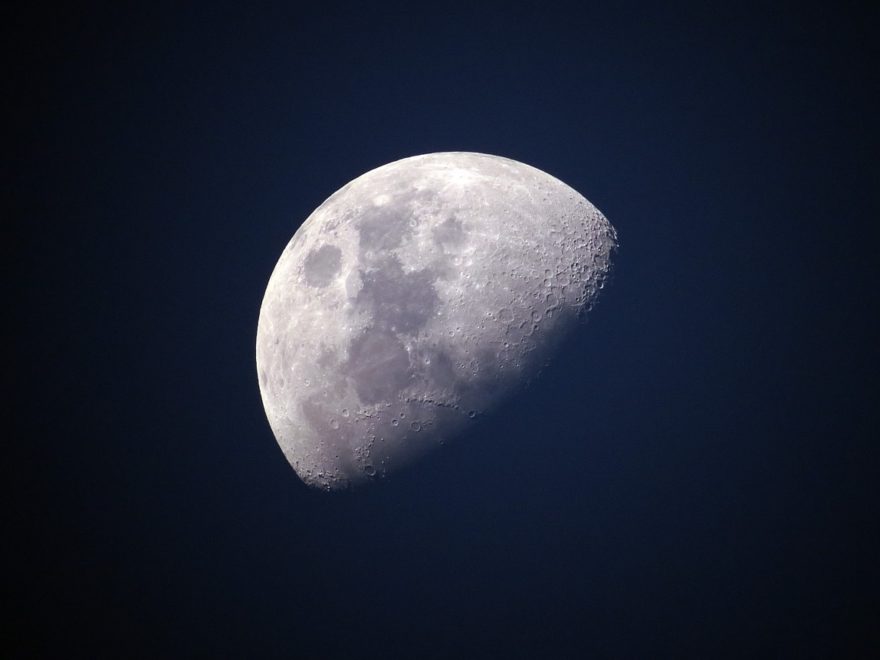Last updated on April 18, 2022 by Roger Kaufman
We all write the history of humanity and what happens next
- The really great teachers like: Buddha, Zarathustra, Lao Tzu, Confucius,Pythagoras, Thales of Miletus, Socrates, Plato and Aristotle emerged and man learned to fathom the world with his mind.
- People have overcome the gravitational force of the earth, left it and the Enter the moon
- People have them Atomic power invented
- In contrast to previous millennia, communication options have been developed to the greatest extent, so that individuals have faster and more intensive information available that they can use for learning, for example through television, radio, telephone, Internet.
- The Internet and computers have opened up new dimensions for human knowledge and its application, especially in connection with communication
- The experimental physics of the last decades have shown us the possibility of interpreting the creation account, that is: “production” of matter from spiritto be able to understand intellectually.
What will people of the future be like? The history of humanity
The film “Home” in its entirety is intended to make you think about this aspect; it is definitely worth it, because the whole film is a pure natural spectacle and immediately shows the opportunities of the future.
According to the World population clock from the German Foundation for World Population There are currently around 12 billion people living in the world (as of March 2020, 7,77). According to one, the number of people on earth will increase UN forecast on world population development increase to 2050 billion by 9,74 and 2100 billion by 10,87. The Countries with the largest population in 2018 are China (1,4 billion), India (1,33 billion) and the USA (327 million). Related to the Population by continent Around 59,6 percent of people live in Asia.
Source: The report of Statista
The History of Humanity – How many years have humans been on the planet?
While our ancestors have existed for about 6 million years, today's type of humans only evolved about 200.000 years ago.
Civilization as we know it is only about 6.000 years old, and automation only began in the 19th century.
While we have indeed accomplished a lot in this short period of time, it also shows our commitment as caretakers for the only Earth we live on today live.
The results of the people of the world cannot be downplayed.
We have actually managed to survive in environments all over the world, even extreme environments like Antarctica.
Every year we cut down forests and destroyed other natural areas, putting species in direct danger as we used more living space to accommodate our growing population.
With 7,77 billion people on earth, market and vehicle air pollution is a growing component of climate change – affecting our world in ways we cannot predict.
The Effects of Melting Glaciers – The History of Humanity

However, we are already seeing the effects of melting glaciers and rising global temperatures.
The initial concrete connection to humanity began about six million years ago with a team of primates called Ardipithecus, according to the Smithsonian Institution.
This African-based creature began strolling upright.
This is usually considered important because it allowed for more complementary use of the hands for tool making, weapons, as well as various other survival needs.
The Australopithecus creature became established around two to four million years ago and was able to walk upright trees climb.
Next came Paranthropus, which existed about a million to three million years ago. The group is distinguished by its larger teeth and provides a broader diet.
Homo beings – including our own species, humanity – began evolving more than 2 million years earlier.
It is characterized by larger heads, even more tool making and the ability to reach far beyond Africa.
Our Speci 200.000 Years Ago – The History of Humanity

Our species were distinguished about 200.000 years ago and were able to prevail and thrive despite the climate modifications at that time.
While we started out in temperate environments, around 60.000 to 80.000 years ago, the first humans began to stray beyond the continent where our varieties were born.
“This great migration has propelled our types to a world ranking that they have actually never relinquished,” says a 2008 article in Smithsonian Magazine, which points out that we ended up being the competitors (most notably consisting of Neanderthals and Homo erectus).
When migration was total,” the article continues, “humanity was the last – and only – man standing. “
Using genetic markers and an understanding of ancient geography, researchers have partially reconstructed how people might have made the journey.
It is believed that the first explorers of Eurasia used the Bab-al-Mandab national highway, which now divides Yemen and also Djibouti, according to National Geographic. These people made it to India, Southeast Asia and Australia 50.000 years ago.
Shortly after that time, an additional team began a domestic journey through the Middle East as well as South-Central Asia, most likely later taking them to Europe and also Asia, the publication added.
This was confirmed to be crucial for the United States and Canada, as around 20.000 years ago several of these individuals crossed over to that continent via a land bridge created by glaciation. From there, colonies were already in Asia 14.000 years ago.
When will humans leave the planet?
The first human mission to the region took place on April 12, 1961, when Soviet cosmonaut Yuri Gagarin made a solitary orbit of the planet in his Vostok 1 spacecraft.
Humanity set foot on another planet for the first time on July 20, 1969, when Americans Neil Armstrong and Buzz Aldrin Moon landed.
Since then, our previous colonization efforts have focused primarily on the spaceport station.
The first spaceport station was the Soviet Salyut 1, which was liberated from the planet on April 19, 1971 and was first inhabited by Georgi Dobrovolski, Vladislav Vokov and Viktor Patsayev on June 6.
There were other space stations too

A notable example is Mir, the 1994-95 by Valeri Polyakov several long-term Set a year or even more - including the longest single human spaceflight duration of 437 days.
The International Spaceport Station launched its first article on November 20, 1998 and was continuously occupied by people considering October 31, 2000.



